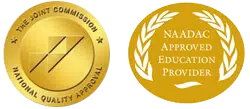Throughout Step 8, in the Recovery Program, you created a list of people who have been hurt by your words and actions during your fight with addiction. You have come up with means to reconcile, along with ways to heal through these tough conversations and interactions with those of your past. As you move on to Step 9, you aim to “make direct amends to such people, wherever possible, except when to do so would injure them or others.” The thought of exploring past relationships, during the most trying time in your life, may feel like a hard pill to swallow, but it is essential to your healing process and paving a road to long-term recovery.
What does Step 9 accomplish?
Step 9 is about making amends with those you’ve hurt directly through your battle with addiction. Through this step you are using the list you’ve compiled in Step 8 to bring forth action to make amends with all those that you’ve harmed, in a peaceful, yet proactive way. Step 9 brings about restored relationships and aims to fix the brokenness that your past has caused to yourself and others.
How do I handle the condition of Step 9 that states, “except when to do so would injure them or others?”
Sometimes there may be situations that you cannot walk back into and that is okay. Do not try to make amends with those who will feel worse after speaking or meeting with you. The last thing you want to do, on your personal journey to healing and recovery, is cause further pain or injury to someone else. Avoid conversations that will do more harm than good. If you are unsure about a certain person or situation, talk directly to your sponsor or therapist for a trusted opinion on the matter.
What happens if they do not forgive me?
Making amends is less about forgiveness and more about the personal peace that is gained from speaking up about instances where you’ve caused harm. Forgiveness would be the most ideal outcome but is not essential to your amendment journey. You are not responsible for their reaction but are in control of righting your wrongs. An amend is not technically defined as a forgiven moment, but a change that occurs. Allowing yourself to show that you’ve changed, and you are regretful of your words or actions is enough to make an amendment and move forward with a sense of fulfillment and reconciliation in your heart.
If you had to describe Step 9 in one word what would it be?
Restoration. Step 9 is about restoring the brokenness that you’ve caused in your heart and the hearts, minds and bodies of others. Understanding that by speaking up and apologizing for the harm you caused can bring peace to yourself and others is an essential facet of Step 9. During this step you are restoring and amending severed relationships. Through this process you may start anew and refreshed on your journey to recovery. This step is about the idea of progress over perfection. The conversations you have will be difficult and uncomfortable, nowhere near perfect, but they will bring a level of progress to your long-term recovery efforts that cannot be gained through other means.
To learn more about Step 9 and the 12-Step Recovery Program or to seek amends with those you’ve harmed through your battle with addiction, contact us today. If your loved one is struggling, we can help you, help them. Don’t hesitate to reach out.
Baystate Recovery Center, a clinically Infused 12-Step Treatment Center for Drug and Alcohol Addiction, was founded by two partners in addiction treatment services, John Checchi and Michael Wilson.



